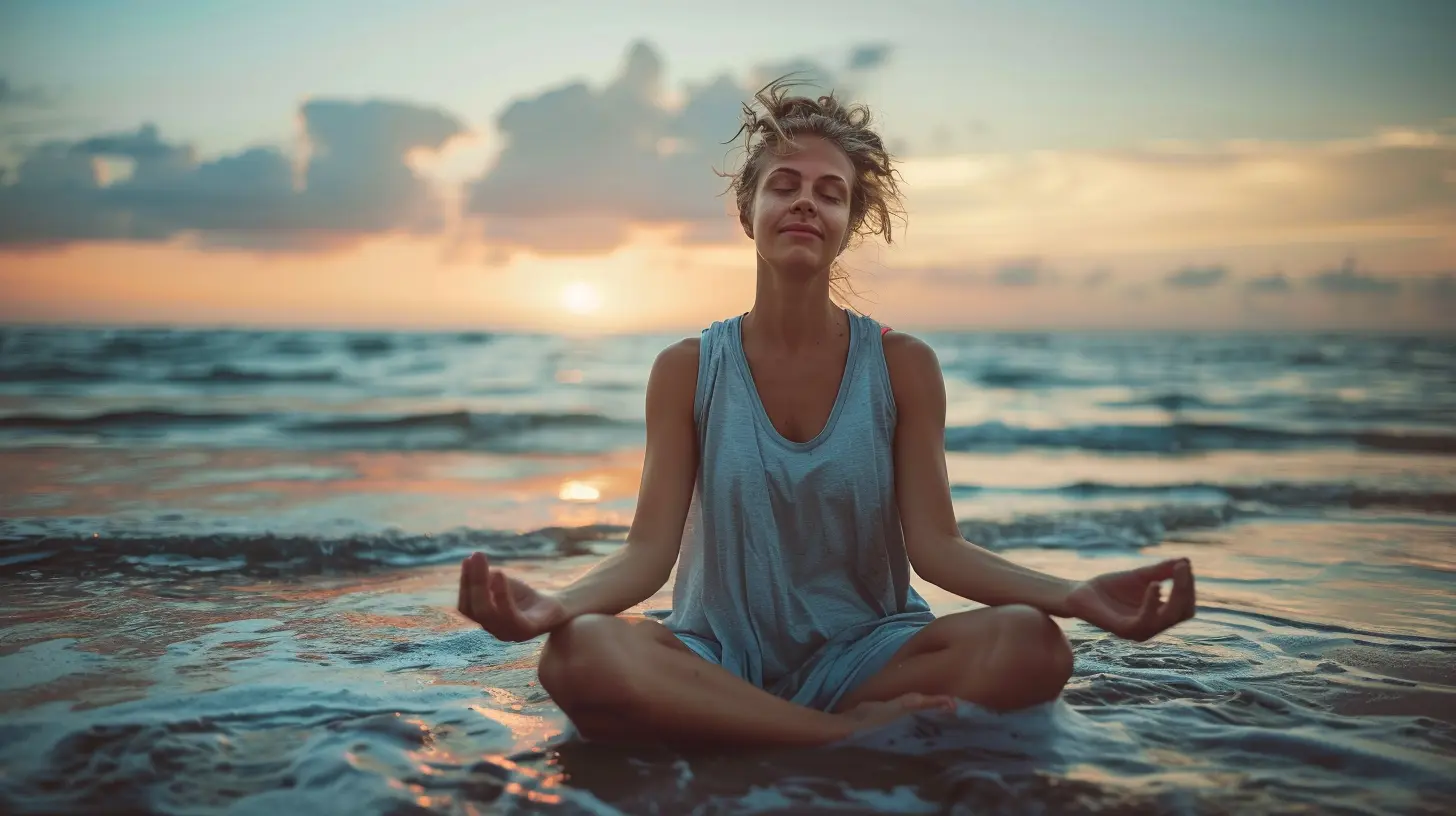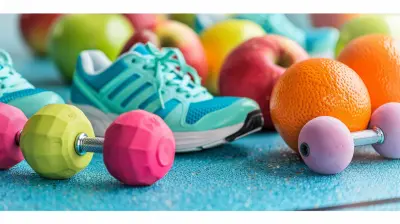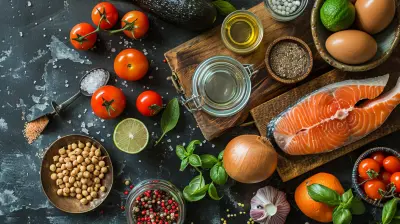How Mindfulness Can Help You Break Unhealthy Habits
24 May 2025
We all have them—those pesky habits we know aren’t doing us any favors. Maybe it's mindless snacking late at night, scrolling endlessly on social media, or lighting up a cigarette during stressful moments. Whatever the habit is, you’ve probably tried to quit it before. And maybe you’ve even succeeded for a while... until you didn’t. Sound familiar?
But what if I told you that you don’t have to rely on willpower alone? What if there was a way to break free from these damaging patterns without feeling like you're in a constant battle with yourself? This is where mindfulness comes in—a simple, powerful tool that can actually transform your relationship with your habits.
In this article, we’re diving deep into how mindfulness can help you break unhealthy habits—and not just temporarily, but for good.
What Is Mindfulness, Really?
Let’s clear up one thing: mindfulness isn’t just sitting cross-legged on a cushion and chanting “om.” Sure, meditation is a part of it, but mindfulness is more about paying attention—on purpose—to your thoughts, feelings, and actions without judgment.Think of mindfulness as mental fitness. Just like you train your muscles at the gym, you can train your mind to become more aware and less reactive.
Here’s the kicker: that awareness can be the very thing that breaks the cycle of automatic, unhealthy behavior.
Why Habits Are So Hard to Break
Before we talk about fixing the problem, let’s understand it. Habits—especially the unhealthy ones—are deeply wired into our brains. They’re often automatic, triggered by cues—and they provide a reward, even if it's short-lived.Here's a common loop:
1. Cue → You feel stressed after a long day.
2. Routine → You grab a bag of chips and start munching.
3. Reward → You feel comforted and distracted.
Your brain goes, “Hey, this feels good,” and makes a note to repeat it next time. Over time, this loop becomes second nature. The trick is—noticing the loop before it happens. That’s where mindfulness walks in like a superhero in sweatpants.
The Science Behind Mindfulness and Habit Change
Let’s get nerdy for a second. Studies show that mindfulness can actually rewire parts of the brain responsible for self-regulation, decision-making, and emotional control—specifically the prefrontal cortex.Here’s how it works:
- Mindfulness increases activity in the prefrontal cortex (the rational part of your brain).
- It reduces the power of the amygdala, which handles fear and reactive emotions.
- It strengthens the connection between your thoughts and your actions, meaning you’re no longer on autopilot.
Translation: You become the boss of your habits instead of letting them boss you around.
How Mindfulness Helps You Catch the Habit Loop
Let’s say your go-to reaction to boredom is grabbing your phone and diving into TikTok. You’re not even thinking—you just do it.But try this:
1. Next time boredom hits, pause for a second.
2. Notice what you're feeling. Is it boredom? Anxiety? Restlessness?
3. Stay with that feeling without acting on it right away.
This pause, this tiny sliver of awareness—that's mindfulness. By inserting just a moment of conscious attention between the cue and the response, you disrupt the loop.
It's like finding the “off” button in a behavior that once felt automatic.
Practical Ways to Use Mindfulness to Break Unhealthy Habits
Alright, now let’s get practical. Here are some tried-and-true ways you can bring mindfulness into your daily life to combat those sneaky bad habits.1. Use the "RAIN" Technique
RAIN stands for:- Recognize what's happening
- Allow the experience to be there
- Investigate with curiosity
- Nurture yourself with kindness
This method helps you explore your urges with compassion, not criticism. It's like becoming your own supportive coach instead of your harshest critic.
2. Pause Before Reacting
Every time you feel the urge to dive into a habit, experiment with a 10-second pause. Ten seconds of breathing, observing, and checking in.Ask yourself:
- What am I feeling?
- Do I really want this?
- What do I actually need right now?
Spoiler: Often, it’s not the snack or the cigarette—it’s connection, rest, or self-compassion.
3. Practice Mindful Eating, Walking, or Cleaning
You don’t need a mountain retreat. Just slow down and pay attention during everyday routines. Eat without scrolling your phone. Walk without earbuds. Clean while really noticing the movement and rhythm.These mundane moments can be powerful practice grounds for mindfulness that strengthen your awareness muscles.
4. Track Your Triggers
Keep a small journal or use an app to jot down what triggers your habits. Over time, patterns will emerge.Seeing it all laid out can be a huge "aha!" moment. You start to see that you’re not weak or broken—you’re just human, responding to stress or emotion in habitual ways.
5. Swap the Habit with a Mindful Alternative
Instead of saying "no" to the habit, try offering yourself something else.- Instead of binging Netflix when overstimulated, try 10 minutes of deep breathing.
- Instead of emotional eating, have a mindful conversation with a friend.
- Replace doomscrolling with journaling your thoughts.
The key is choosing something that still meets the need—just in a healthier way.
Mindfulness and Emotional Triggers
Here’s a truth bomb: Most unhealthy habits are tied to emotions we're trying to avoid.Feel anxious? You reach for sugar.
Feel lonely? You text your ex.
Feel overwhelmed? You zone out in front of the TV.
Mindfulness helps you feel your feelings without needing to numb them. And yes, it might be uncomfortable at first. But this emotional resilience is what stops the cycle from repeating.
It’s not about not feeling—it’s about feeling in a way that doesn’t control you.
The Role of Self-Compassion in Habit Change
Let’s not sugarcoat it—habit change is hard. Some days you'll slip. Some days you’ll overeat, overscroll, overreact.Here’s where mindfulness’s close cousin, self-compassion, becomes your best ally.
Instead of beating yourself up, try this:
- “Okay, I slipped today. That’s part of the process.”
- “What triggered me?”
- “How can I take care of myself moving forward?”
When you treat yourself with kindness, you’re more likely to stay on track—not less. It’s like giving yourself a soft place to land instead of a hard kick when you’re already down.
Meditation Isn’t Required (But It Helps)
Let me be clear: You don’t have to meditate for an hour a day to be mindful.Start small, like:
- A 5-minute breath check-in each morning
- 30 seconds of body awareness before a meal
- Taking 3 mindful breaths before reacting
But if you’re up for it, building a short meditation habit—even 10 minutes a day—can supercharge your awareness and emotional clarity. Think of it as your daily brain reboot.
Common Unhealthy Habits Mindfulness Can Tackle
Here are just a few habits that mindfulness can help you overcome:- Emotional eating
- Smoking or vaping
- Nail biting
- Excessive phone use or social media addiction
- Negative self-talk
- Impulsive spending
- People-pleasing
- Overthinking or chronic worrying
Mindfulness doesn’t care what your "bad habit" is. It’s a universal tool that meets you where you are.
Real Talk: What Happens When You Stick With It
Here’s what you can expect if you stick with mindfulness:- You catch yourself before bad habits take over.
- You respond consciously instead of reacting impulsively.
- You develop new habits that support your well-being.
- You build confidence in your ability to handle discomfort.
- You feel calmer, clearer, and more at ease—no matter what's going on externally.
Sounds pretty amazing, right?
Final Thoughts
Breaking unhealthy habits isn’t about being perfect. It’s about being present.Every mindful moment is a chance to choose differently, to respond instead of react, to show up for yourself in a way that you might not have before.
And the beautiful part? It’s not about adding another chore to your list. Mindfulness doesn’t require a gym membership, expensive gear, or hours of time.
Just your attention. Your willingness. Your breath.
So next time that old habit tries to pull you back, pause. Breathe. Get curious instead of critical. And remember—you’re not trying to fight the habit. You’re learning to outsmart it by simply being aware.
all images in this post were generated using AI tools
Category:
MindfulnessAuthor:

Holly Ellison
Discussion
rate this article
3 comments
Lindsey Morris
Mindfulness fosters self-awareness, enabling individuals to identify triggers for unhealthy habits. By promoting a non-judgmental approach, it empowers conscious decision-making, ultimately facilitating lasting behavioral change and improved overall well-being.
June 16, 2025 at 4:11 AM

Holly Ellison
Thank you for your insightful comment! Mindfulness indeed plays a crucial role in enhancing self-awareness and promoting healthier choices. It's a powerful tool for lasting change.
Tristan Pace
Great article! Mindfulness truly empowers us to transform our habits for a healthier, happier life.
May 27, 2025 at 5:00 AM

Holly Ellison
Thank you! I'm glad you found it inspiring. Mindfulness is indeed a powerful tool for creating positive change.
Zane McGovern
Mindfulness: the secret sauce for your habits! Sprinkle it on, and watch those unhealthy choices pop like popcorn! 🍿✨
May 25, 2025 at 5:04 AM

Holly Ellison
Absolutely! Mindfulness empowers you to make conscious choices, transforming habits and fostering healthier behaviors. 🍿✨



